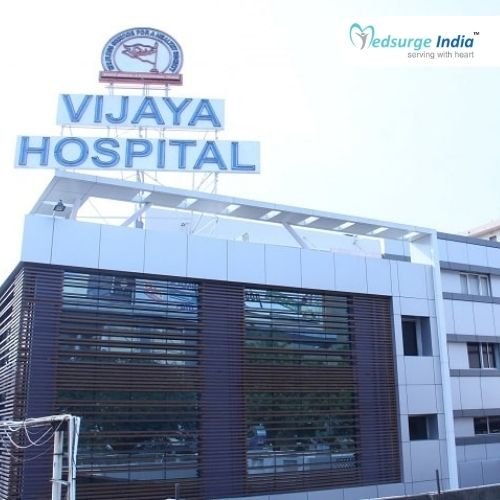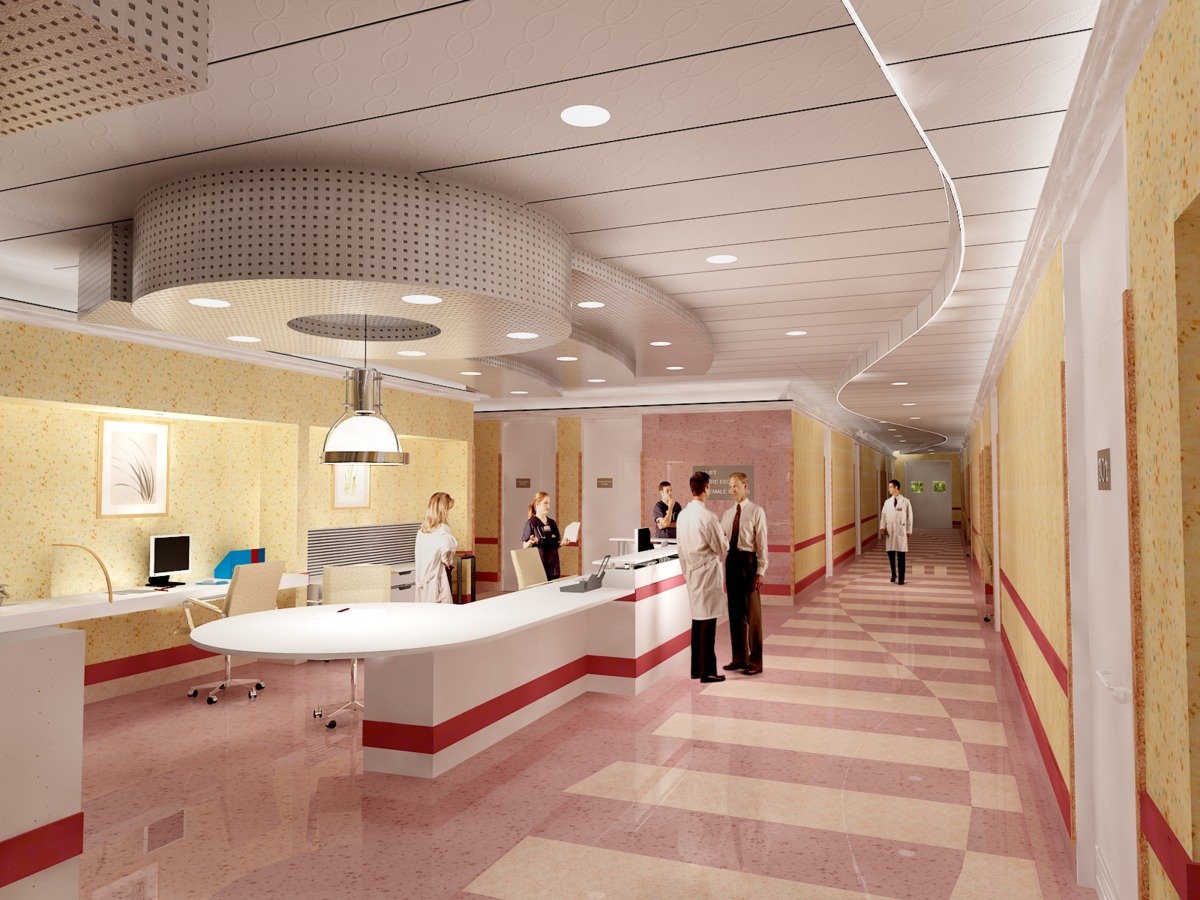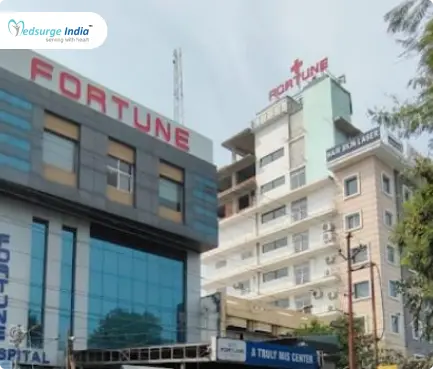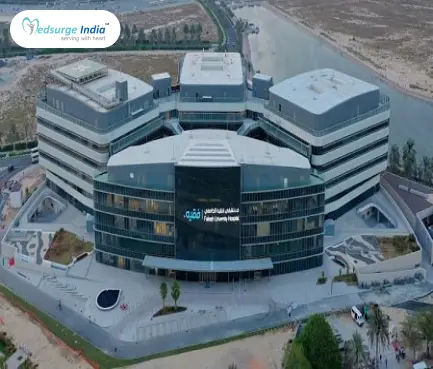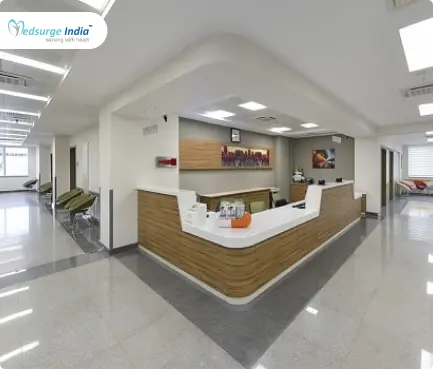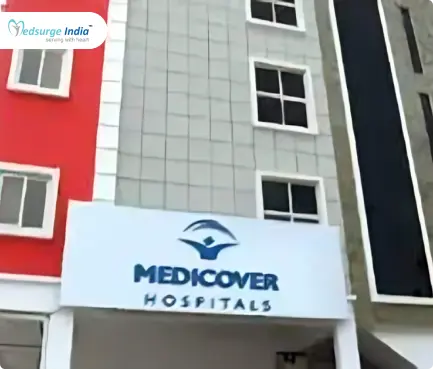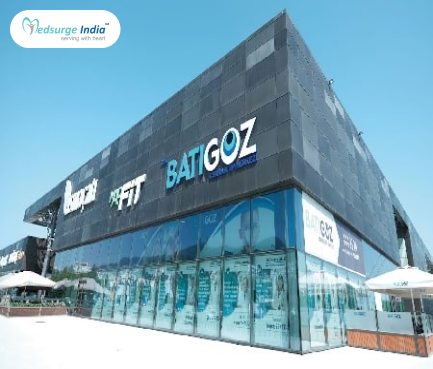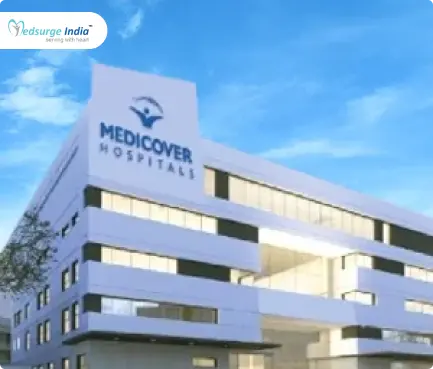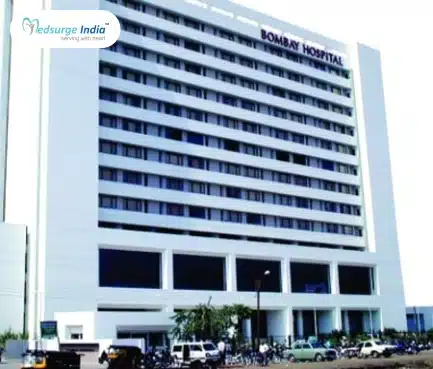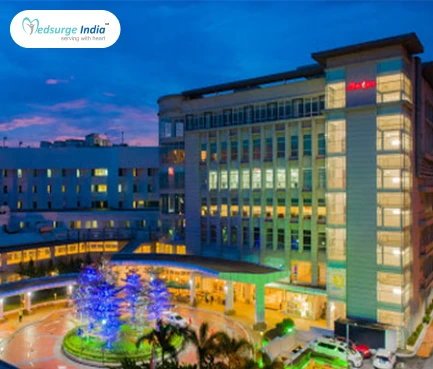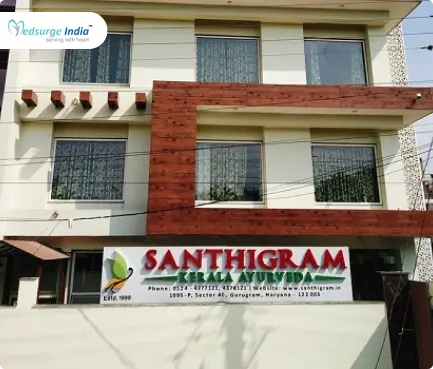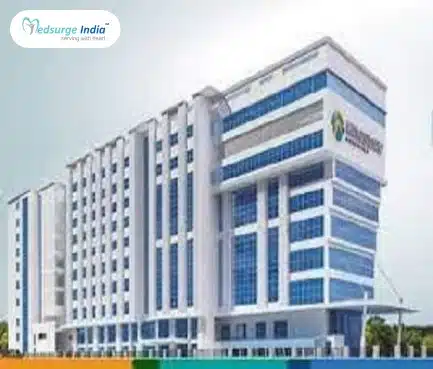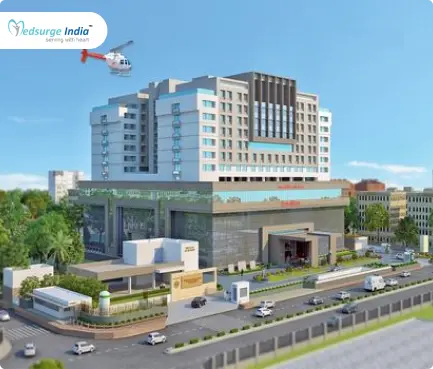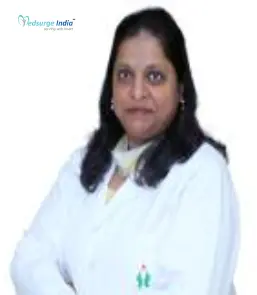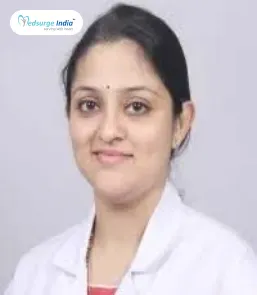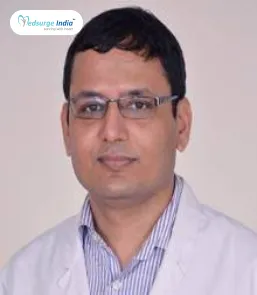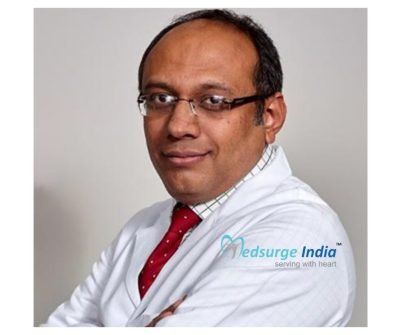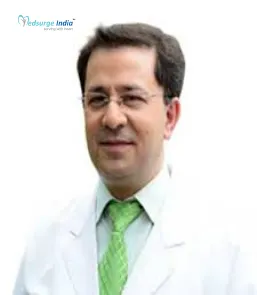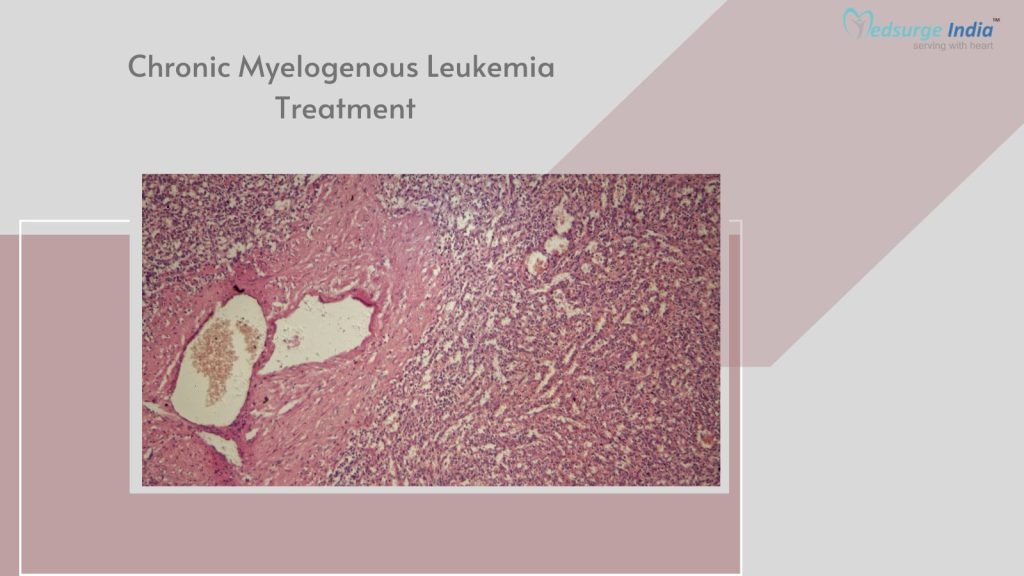
The malignancy of the bone marrow, the spongy tissue found inside bones where blood cells are formed, is rare and is known as chronic myelogenous leukemia (CML). The amount of white blood cells in the blood rises as a result of CML. Though it can happen to anybody at any age, it mainly affects elderly individuals and happens very infrequently in children. Doctors in India assess the patient’s preferences and general health before recommending a course of treatment. Other considerations include the disease’s stage, potential side effects, and treatment choices. People with chronic myelogenous leukemia in India now have a significantly better prognosis because of medical advancements. After diagnosis, the majority of patients will have remission and live a long time.
Treatment for chronic myelogenous leukemia in India is much lesser as compared to other developed countries like the US, America, Russia, etc. Together with the skill of an oncologist, hematologists, and the state-of-the-art medical equipment used at the top Indian hospitals may be partially credited for the success. In addition to these advantages, India is well known for its low costs without lowering clinical standards.
What Is Chronic Myelogenous Leukemia?
Chronic myelogenous leukemia (CML) is a kind of cancer that develops in the bone marrow’s blood-forming cells. Chronic refers to the fact that this malignancy often advances more slowly than acute myeloid leukemia (AML). The term “myelogenous” describes the kind of cells that are harmed by this kind of cancer. The illness is also known as chronic granulocytic leukemia or chronic myeloid leukemia
A particular alteration in the bone marrow stem cell is the cause of CML’s onset. Particularly, BCR-ABL, an aberrant gene, is present in CML cancer cells. This gene produces a protein that fuels the uncontrolled growth of cancer cells. Therefore, the bone marrow creates an excessive amount of granulocytes (a type of white blood cell). Blasts, or immature white blood cells, build up over time. Your bone marrow finds it challenging to create typical red blood cells, white blood cells, and platelets as a result.
There are many phases of chronic myelogenous leukemia. Each one demonstrates how aggressive the cancer is. The three main stages of chronic myelogenous leukemia are as follows:
- Chronic: The best response to therapy often occurs in those who are in this early stage.
- Accelerated: The transitory stage of cancer sees an increase in its aggressiveness.
- Blast: Blast, the final stage of CML, is the worst. The illness is now considered to be life-threatening.
Chronic Myelogenous Leukemia Treatment Cost in India
Chronic myelogenous leukemia treatment cost in India starts from INR 11,66,000 (14,000 USD). India offers healthcare at significantly lower costs as compared to other countries. Furthermore, the quality of the medical services and treatment provided there is on par with that of the best hospitals in the world. Even without taking travel, lodging, and food expenses into account, the price of treatment is much affordable than other countries.
Factors That Can Affect Chronic Myelogenous Leukemia Treatment Cost in India
- Need for post-operative care.
- Hospital room classification.
- The price of treatment packages can depend on the hospital’s preference.
- Doctor’s competence and experience in the subject.
- Duration of hospitalization and stay in the country.
- The patient’s situation: The patient’s disease and whether additional modalities are required for comprehensive treatment.
What Are the Signs and Symptoms of Chronic Myelogenous Leukemia?
The following indications or symptoms may be present in people with CML. Or, a medical disease other than leukemia might be to blame for a symptom. But because CML often advances slowly, symptoms might not show up for a while. Typically, the symptoms start off modest and gradually develop worse. Additionally, many CML patients have no symptoms at all. Blood tests performed for another cause are most frequently used to detect CML. When they appear, warning indicators may include:
- A bone ache
- Quick bleeding
- Being satisfied after consuming a tiny amount of food
- Feeling exhausted or run-down Fever
- Loss of weight without effort
- Reduced appetite
- Pain or fullness behind the ribcage on the left side
- Sweating excessively when sleeping (night sweats)
How Is Chronic Myelogenous Leukemia Diagnosed?
Most frequently, CML is discovered during a regular blood count. Your healthcare practitioner will schedule additional tests to confirm your diagnosis if they have any reason to believe you may have CML. These tests might consist of:
- Physical examination and medical history: An examination of the body to look for indicators of disease, such as an enlarged spleen, as well as general markers of health. Additionally, a history of the patient’s health practices, diseases, and treatments in the past will be recorded.
- Blood chemistry studies: This method involves analyzing a blood sample to determine the concentrations of certain compounds that the body’s organs and tissues release into the blood. An abnormally high or low concentration of a chemical might indicate illness.
- Bone marrow aspiration and biopsy: The removal of bone marrow, blood, and a tiny piece of bone through the hipbone or breastbone with a needle. A pathologist looks for aberrant cells by microscopically examining the bone marrow, blood, and bone.
The samples of blood or bone marrow tissue is taken may be subjected to one of the following tests:
- Cytogenetic analysis: A laboratory procedure that counts and examines the chromosomes of cells in a sample of bone marrow or blood for any alterations, such as damaged, missing, altered, or additional chromosomes. Chromosome changes, such as those in the Philadelphia chromosome, might be an indication of malignancy. Cancer can be diagnosed through cytogenetic analysis, and it can also be used to design treatments or assess how well they are functioning.
- Reverse transcription-polymerase chain reaction assay (RT-PCR): A laboratory test that quantifies the quantity of mRNA produced by a particular gene. A specific piece of RNA is transformed into a matching piece of DNA by an enzyme called reverse transcriptase so that it may be amplified (produced in vast quantities) by another enzyme called DNA polymerase. The amplified DNA copies make it possible to determine if a certain mRNA is produced by a gene. The activation of specific genes that may point to the existence of cancer cells may be checked using RT-PCR. This test may be used to check for specific chromosomal or gene abnormalities that might aid in the diagnosis of cancer.
- Fluorescence in situ hybridization (FISH): A laboratory test used to examine and quantify genes or chromosomes in cells and tissues. A sample of cells or tissues from a patient is mixed with fluorescent dye-containing DNA fragments that were created in the lab. In the sample, these coloured DNA fragments bind to certain genes or regions of the chromosomes, which causes them to glow when observed under a fluorescence microscope. The FISH test is used to assist in cancer diagnosis and therapy planning.
Get Free Cost Estimation
Procedure
What Is the Type of Treatments For Chronic Myelogenous Leukemia?
Patients with chronic myelogenous leukemia can choose from a variety of treatments. Clinical trials are being conducted to evaluate various therapies, some of which are conventional. Here are some of the most widely used to treatments for Chronic Myelogenous Treatment in India:
Chemotherapy
Chemotherapy is a form of cancer treatment that employs medications to kill cancer cells or prevent them from proliferating in order to limit the development of cancer cells. Chemotherapy enters the circulation whether administered orally or by injection into a vein or muscle, where it can reach cancer cells throughout the body (systemic chemotherapy).
Immunotherapy
Immunotherapy is a form of cancer treatment that activates the patient’s immune system. Utilizing compounds created by the body or in a laboratory, the body’s natural defenses against cancer are strengthened, directed, or repaired. Cancer patients may get biological therapy.
Targeted treatment
A form of therapy called targeted therapy identifies and kills particular cancer cells using medicines or other chemicals. Compared to chemotherapy or radiation therapy, targeted therapies often have a lower impact on healthy cells.
Stem Cell Transplant With High-Dose Chemotherapy
To eradicate cancer cells, high dosages of chemotherapy are administered. Cancer therapy also destroys healthy cells, such as blood-forming cells. A therapy to replenish the blood-forming cells is a stem cell transplant. The patient’s or a donor’s bone marrow is harvested for its stem cells (immature blood cells), which are then frozen and kept in storage. The patient receives an injection of thawed-out stored stem cells following the conclusion of treatment. These stem cells are reinfused and develop into (and replenish) the body’s blood cells.
Surgery
A splenectomy can be required if leukemia extends to the spleen even though surgery cannot be used to treat CML directly. Spleen swelling brought on by leukemia may cause it to push excessively against neighboring organs. It’s crucial to highlight, however, that surgery has no function in treating chronic myelogenous leukemia.
How to Choose a Hospital in India for Chronic Myelogenous Leukemia Treatment?
Hospitals that specialize in treating Chronic Myelogenous Leukemia are well known for their high standards of treatment and hospitality. Some of India’s leading oncologists, hematologists, and subject-matter authorities are housed in these hospitals. A foreign patient may find it difficult to choose a reputable facility for treatment. It is a significant decision that must be taken while bearing several considerations in mind, such as:
- Accreditations and certifications for excellence
- Location of the hospital and the transit hub
- The medical and surgical staff
- Modern diagnostic and treatment tools
- Overseas medical help
How Can Medsurge India Help?
Medsurge India is a prestigious support system for patients looking for doctors, hospitals, and specialized treatments. We’ll find the most suitable medical options for you. Regarding your medical issues, our team will give you a list of certified, reputable, and trusted doctors and hospitals. Additionally, we offer a treatment strategy that fits your budget. Apart, we assist patients with obtaining travel authorizations, medical visas, and a multitude of other things.
The Most Important Frequently Asked Questions
Q1: Which Treatment Is Most Effective for Chronic Myeloid Leukemia?
A1: The primary medication used to treat CML is a drug called imatinib. It is often administered quickly after a cancer diagnosis in order to decrease the disease’s course and keep it from progressing to an advanced stage. Reduced formation of aberrant white blood cells is how imatinib works.
Q2: What Is CML’s Initial Course of Treatment?
A2: The first line of treatment for CML is tyrosine kinase inhibitors (TKIs). In May 2001, imatinib became the first oral TKI to be authorized for the treatment of CML. Second- and third-generation TKIs, including dasatinib and nilotinib, were subsequently authorized for use as first-line therapies.
Q3: How Long Does CML Chemotherapy Last?
A3: The frequency of your treatment visits will depend on the location of your illness and the type of cancer you have. It may take around 5 months for chemotherapy.
Q4: Do Other Organs Get Affected by CML?
A: The illness eventually spreads to different body parts. Being classified as chronic often means that this particular kind of leukemia spreads and develops slowly. However, CML has the potential to transform from a slowly developing form of leukemia into an acute version with fast growth that can affect virtually every organ in the body.
Q5: What Is the Lifespan of Chronic Leukemia?
A5: Patients with CLL have a wide range of prognoses at the time of diagnosis. Some people experience a quick demise due to CLL complications, within 2-3 years after diagnosis. The majority of patients have a lifespan of 5 to 10 years, with a relatively benign first course that is followed by a fatal, progressive, and resistant phase lasting 1-2 years.
Top Hospitals for Chronic Myelogenous Leukemia (CML) Treatment in India
Top Doctors for Hematology
Dr. Anjali Jain
Senior Consultant
Experience: 13 years of experience
Fortis Escorts Hospital, Faridabad
Faridabad, India
Dr. Dhaval Fadadu
Senior Consultant
Experience: 12+ years of experience
Manipal Hospital, Panaji, North Goa
North Goa, India
Dr. Ashish Dixit
Consultant
Experience: 26 years of experience
Manipal Hospital (Old Airport Road) Bangalore
Bangalore, India
Dr. Amit Upadhyay
Senior Consultant MD, MBBS
Experience: 20 years of experience
Pushpawati Singhania Research Institute, New Delhi
New Delhi, India
Dr. A. Karthikeyan
Consultant DM, MD, MBBS
Experience: 25 years of experience
Fortis Malar Hospital, Chennai
Chennai, India
Dr. Santanu Basu
Consultant
Experience: 34 years of experience
Ruby General Hospital, Kolkata
Kolkata, India
Dr. Soumya Bhattacharya
Consultant , MBBS, MD, FRCP, MRCP
Experience: 26 years of experience
Apollo Gleneagles Hospital, Kolkata
Kolkata , India
Dr. Shishir Seth
Consultant , MBBS, MD, DM, Fellowship
Experience: 15 years of experience
Indraprastha Apollo Hospital, New Delhi
New Delhi, India
Dr. Divya Bansal
Consultant
Experience: 19 years of experience
Manipal Hospitals Dwarka, Delhi
New Delhi, India
Dr. Ujal Mani
Senior Consultant
Experience: 42+ years of experience
NH Rabindranath Tagore International Institute of Cardiac Sciences, Kolkata
Kolkata, India
Dr. Rahul Bhargava
HOD
Experience: 17 years of experience
Fortis Memorial Research Institute, Gurgaon
Gurgaon, India
Dr. A. Karthikeyan
Consultant
Experience: 24 years of experience
Fortis Malar Hospital ,Chennai
Chennai, India
Dr. Anil Handoo
HOD
Experience: 10 years of experience
BLK Super Speciality Hospital, New Delhi
New Delhi, India
Dr. Prabu P
Consultant , Fellowship, MD, MBBS
Experience: 15 years of experience
Apollo Hospitals, Greams Road, Chennai
Chennai, India
Dr. Shobha Badiger
Consultant
Experience: 18 years of experience
Rajarajeshwari Medical College, Bangalore
Bangalore, India




